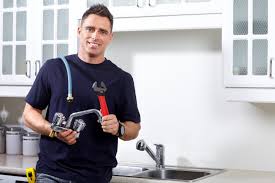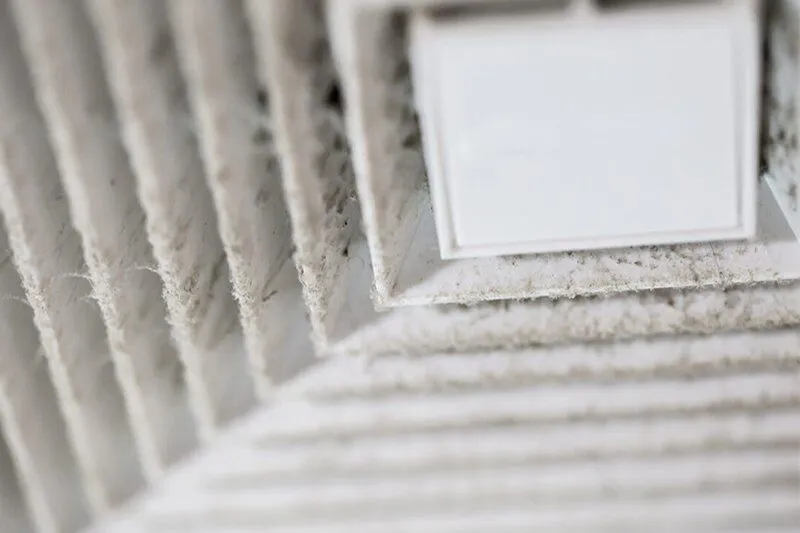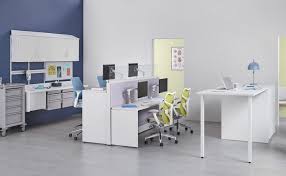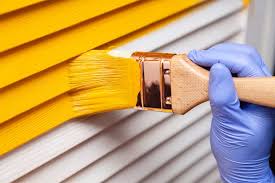How to Avoid Common Pitfalls in FF&E Procurement for Hospitality Projects

Furniture, Fixtures, and Equipment (FF&E) procurement plays a critical role in the success of hospitality projects. Whether you are outfitting a new hotel, resort, or restaurant, the process of selecting, sourcing, and installing FF&E requires careful planning and strategic decision-making. FF&E elements contribute significantly to the guest experience, and the quality, design, and functionality of these items can have a lasting impact on your brand's reputation.
However, FF&E procurement comes with its own set of challenges and pitfalls. From miscommunication with vendors to overlooked details that can lead to delays, avoiding these common mistakes is essential to ensure the success of your project.
In this blog, we will explore the common pitfalls in FF&E procurement for hospitality projects and how you can avoid them to achieve a smooth, efficient, and cost-effective process.
1. Inadequate Project Planning and Scope Definition
One of the most common pitfalls in FF&E procurement is failing to define the scope of the project clearly from the beginning. Incomplete or unclear project planning can lead to misalignment between what you need and what is procured, resulting in unnecessary delays, cost overruns, or even dissatisfaction with the final outcome.
How to Avoid This Pitfall:
Develop a Detailed FF&E Plan: A comprehensive plan should clearly outline the types of furniture, fixtures, and equipment needed for each area of the hospitality project (e.g., guest rooms, lobby, dining areas). This plan should be aligned with your overall design and branding concepts.
Set Clear Budget Guidelines: Establishing a clear budget for each item and area is critical. FF&E costs can add up quickly, so knowing what you can spend on each category will help prevent overspending.
Coordinate with Designers and Contractors: Make sure that interior designers, architects, and procurement teams are on the same page. Miscommunication between stakeholders can lead to discrepancies in specifications, leading to procurement errors.
Benefit: Proper planning ensures that your procurement team knows exactly what items need to be sourced, and your vendors can deliver items that meet your expectations and project requirements.
2. Overlooking Quality Standards and Durability
In hospitality projects, furniture and fixtures must withstand frequent use and maintain their appearance over time. Choosing inexpensive or poorly made items may seem like a cost-saving strategy, but they can result in higher long-term costs due to repairs or replacements.
How to Avoid This Pitfall:
Focus on Quality and Durability: Prioritize sourcing furniture and equipment that are durable, easy to maintain, and designed for high-traffic areas. Quality should always be a top consideration when selecting FF&E, especially for items such as beds, chairs, and tables that will be used frequently by guests.
Understand Material Specifications: Ensure that the materials used in furniture and fixtures are suitable for the intended environment. For instance, materials used in a high-traffic lobby should be more durable than those in a guest room.
Benefit: Choosing high-quality items may cost more upfront but will save you money in the long run by reducing the need for replacements and repairs, and enhancing guest satisfaction.
3. Ignoring Lead Times and Delivery Schedules
FF&E procurement involves coordinating many moving parts, and one of the most common issues is poor timing. Delays in procurement, production, or shipping can hold up the entire project and delay the opening of your property, which can be costly.
How to Avoid This Pitfall:
Plan for Lead Times: Different items may have different lead times, depending on their complexity or whether they are custom-made. Ensure that you have a solid understanding of how long each piece will take to be manufactured and delivered.
Work with Reliable Suppliers: Build relationships with trusted vendors who have a proven track record of meeting deadlines. Avoid last-minute rush orders, which often result in subpar quality or missed deadlines.
Allow for Buffer Time: In addition to planning for the actual delivery dates, factor in some buffer time for potential delays, customs clearance, or installation issues.
Benefit: Meeting your deadlines is essential to ensuring your hospitality property opens on time. Careful scheduling and a focus on timely procurement will avoid costly delays and help you stay on track with the project timeline.
4. Failing to Manage the Budget Effectively
Sticking to a budget is essential, but many hospitality projects go over budget due to a lack of monitoring and control over the FF&E procurement process. It’s easy to get carried away when selecting items or purchasing higher-end fixtures, but unchecked spending can undermine the entire project’s financial feasibility.
How to Avoid This Pitfall:
Establish a Clear Budget for Each Category: Set clear financial limits for each area or category of the FF&E procurement process, such as furniture, lighting, or flooring. Break the budget down further by item or space if necessary.
Monitor Costs Throughout the Process: Regularly track expenditures and compare them to the budget. Keep a close eye on any changes to the cost or scope of items to ensure they remain within budget.
Consider Long-Term Maintenance Costs: While high-end FF&E may have a higher upfront cost, consider the long-term costs of maintenance and durability. A cheaper alternative may cost more over time due to repairs and replacements.
Benefit: By managing your budget effectively, you can ensure that you stay within the financial constraints of the project while still achieving a high-quality, functional design.
5. Underestimating the Importance of Coordination and Communication
FF&E procurement requires close collaboration between multiple teams: designers, project managers, suppliers, contractors, and vendors. Miscommunication between these stakeholders can lead to purchasing the wrong items, errors in specifications, or even duplication of orders, which can be costly.
How to Avoid This Pitfall:
Establish Clear Communication Channels: Set up regular meetings and communication channels to ensure that all parties are updated on the progress of procurement and the project as a whole. This will help identify any issues early on and allow for timely resolutions.
Use a Centralized Procurement System: Implement a project management or procurement system where all stakeholders can access up-to-date information regarding specifications, delivery schedules, and budgets.
Ensure Consistent Specifications: Ensure that all design and procurement teams are aligned on specifications for each FF&E item. This avoids mismatches between what was ordered and what was needed.
Benefit: Strong communication and coordination prevent misunderstandings and errors in procurement, ensuring that the project proceeds smoothly and that the right items are delivered at the right time.
6. Not Considering Sustainability and Eco-Friendly Options
With growing awareness around sustainability, there is an increasing demand for eco-friendly and sustainable FF&E in hospitality projects. However, overlooking sustainability in procurement can result in missed opportunities for your brand to demonstrate environmental responsibility. Additionally, there may be long-term operational benefits from choosing eco-friendly materials and energy-efficient products.
How to Avoid This Pitfall:
Incorporate Sustainable Design: When selecting FF&E, consider materials and products that are environmentally friendly, such as furniture made from recycled or sustainable materials, or fixtures with low energy consumption.
Choose Suppliers Committed to Sustainability: Work with vendors who have eco-certifications or offer products that meet sustainability standards, such as LEED (Leadership in Energy and Environmental Design) or FSC (Forest Stewardship Council) certification.
Benefit: By prioritizing sustainability, your hospitality project can attract eco-conscious guests and align with growing trends toward environmental responsibility, all while benefiting from long-term cost savings through energy efficiency.
7. Failing to Plan for Installation and Maintenance
The procurement process doesn’t end when the FF&E items arrive at your site. Installation and maintenance are critical components that must be factored into your project planning. Poor planning in these areas can lead to delays, damage to the products, or increased costs for repairs.
How to Avoid This Pitfall:
Develop a Detailed Installation Plan: Plan for how and when each item will be installed. Be sure to coordinate with contractors and suppliers to ensure that the correct pieces are delivered to the right locations at the right time.
Set Aside Resources for Maintenance: Consider long-term maintenance needs for each item, from furniture care to fixture repairs. Ensure that your team is trained in proper maintenance procedures or that you have access to ongoing support from suppliers.
Benefit: Planning for installation and ongoing maintenance ensures that your FF&E items last longer and maintain their aesthetic and functional value, reducing future costs and extending the lifecycle of your investments.
Conclusion
FF&E procurement in hospitality projects is a complex process that requires careful planning, communication, and attention to detail. By avoiding common pitfalls such as poor budget management, unclear scope definition, and inadequate coordination, you can ensure that your hospitality property is outfitted with high-quality, durable, and cost-effective furniture, fixtures, and equipment.
By focusing on quality, sustainability, and efficient project management, you can achieve a successful FF&E procurement process that contributes to a superior guest experience, enhanced brand image, and long-term operational success. With the right approach, FF&E procurement can be a seamless part of your hospitality project, driving value and ensuring your property is ready to welcome guests.
Note: IndiBlogHub features both user-submitted and editorial content. We do not verify third-party contributions. Read our Disclaimer and Privacy Policyfor details.







